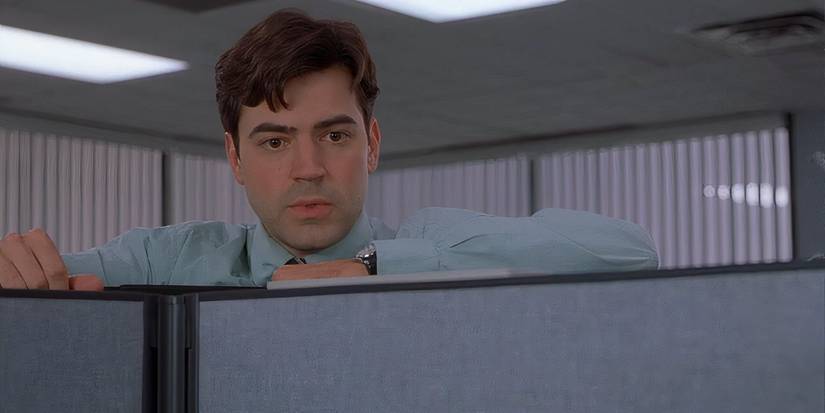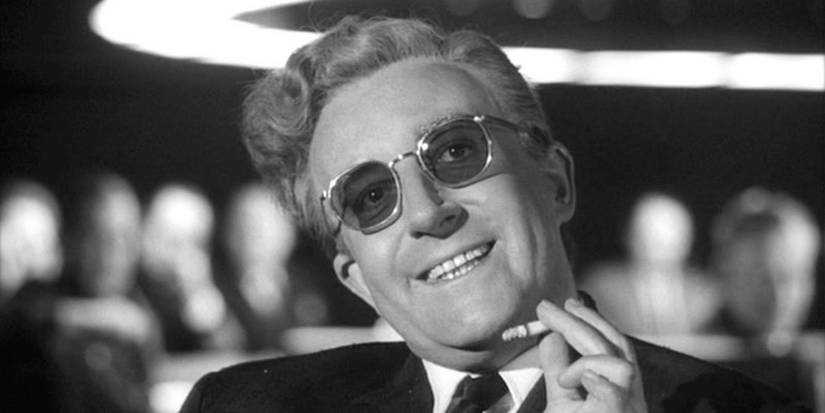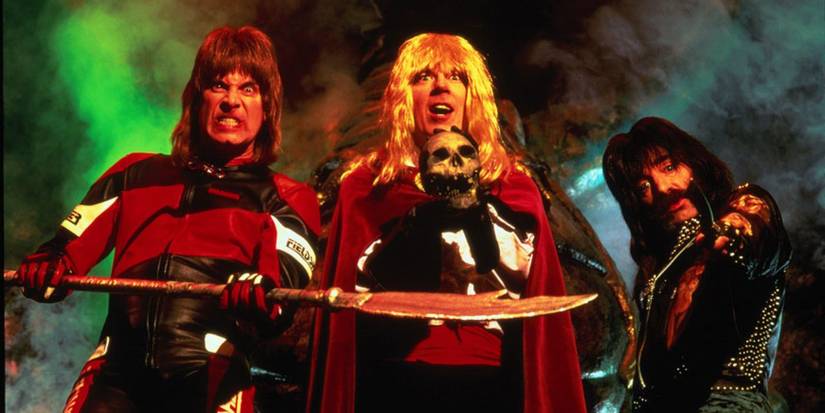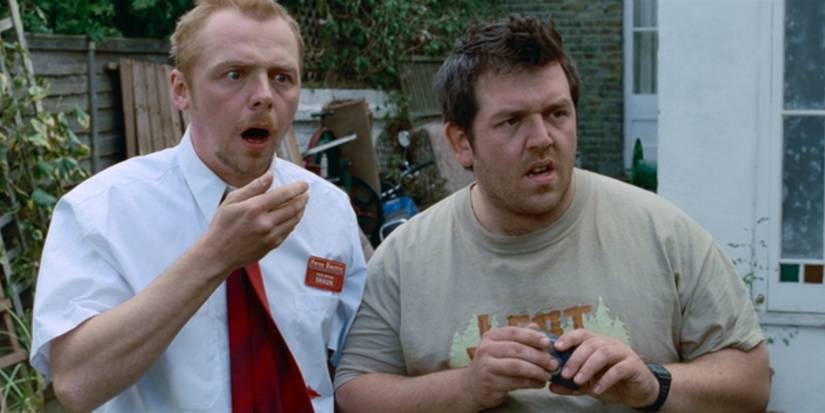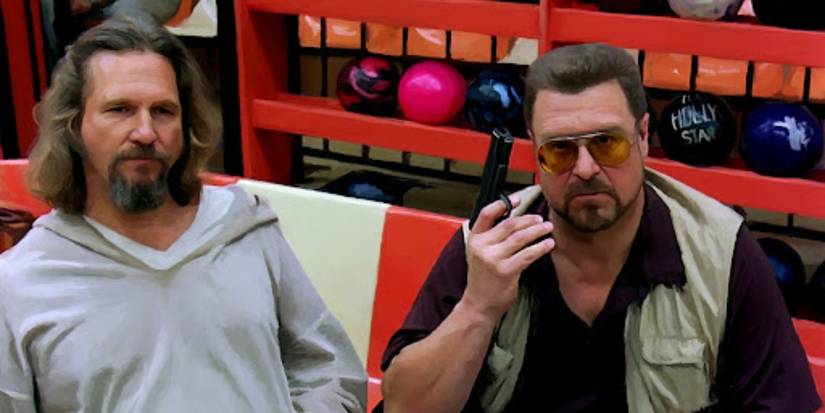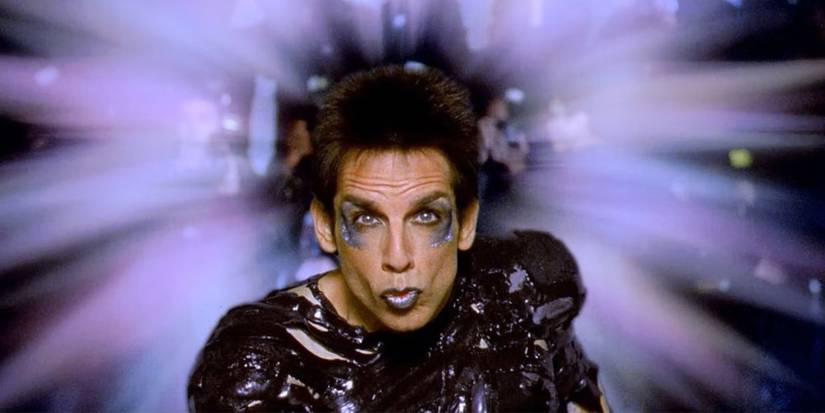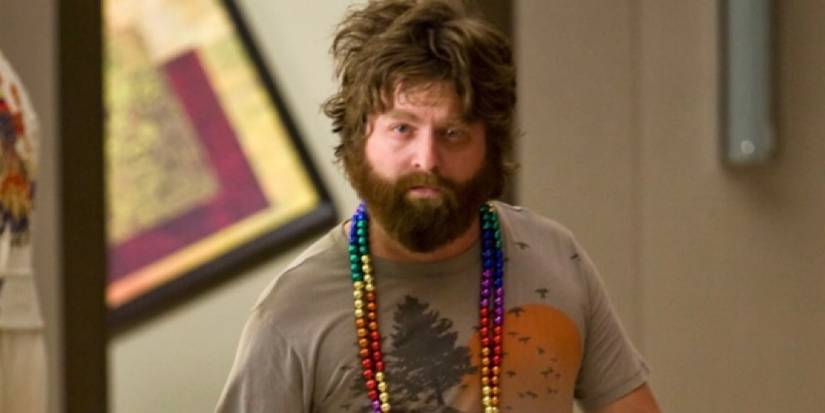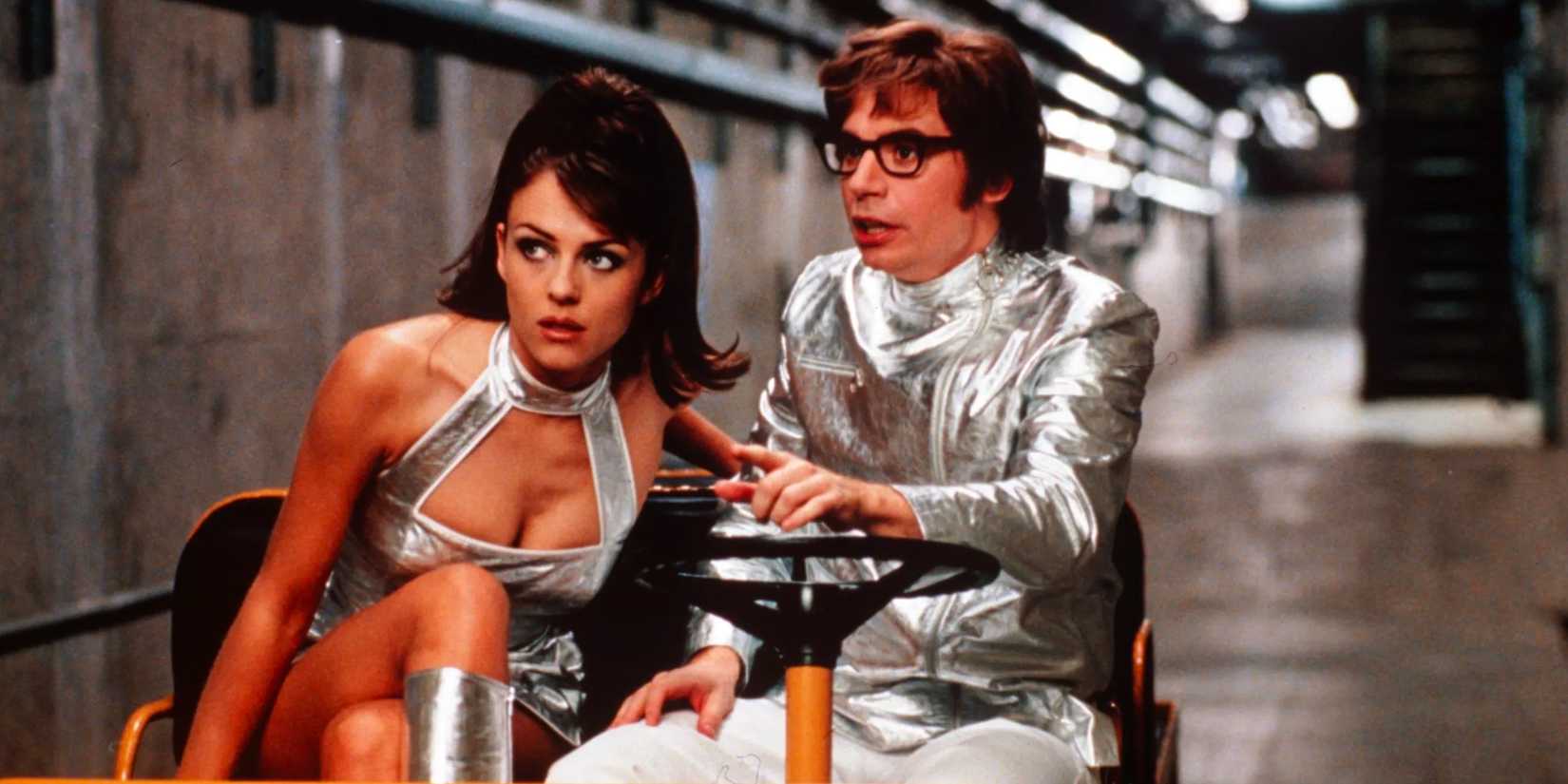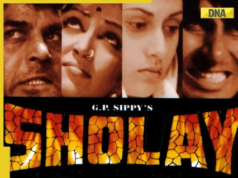When done right, comedy is perhaps the most enjoyable movie genre, offering audiences a much-needed escape from reality. However, it’s much trickier than it looks to pull off. Even when filmmakers make most of their jokes land, comedies tend to be very topical and context-specific, meaning that a lot of these movies are no longer funny even a few years later. However, a small number of comedic gems defy this trend, remaining hilarious years or even decades after release. Their humor transcends a specific time or place.
With this in mind, this list looks at some of the funniest movies ever made. The following comedies might not necessarily be the best as overall films, but their jokes are plentiful and hit hard. Whether lampooning social norms, embracing absurdity, or crafting relatable situations with a humorous twist, these movies stand as testaments to the enduring power of laughter in cinema.
20
‘Team America: World Police’ (2004)
Only Trey Parker and Matt Stone could make a satire this absurd feel so sharp. Team America skewers American interventionism, Hollywood pomposity, and action movie clichés all at once… and while using puppets. The film’s sheer commitment to its bit (string-operated marionettes performing graphic sex, vomiting endlessly, or belting out power ballads) makes it impossible not to laugh. Its humor is outrageous, crude, and frequently offensive, yet there’s a precision to the madness. Many jokes seem dumb but actually make smart points.
In other words, this is a movie that leans so hard into bad taste it circles back to brilliance. Songs like “America, F*** Yeah!” became instant cultural touchstones, while many of its more ludicrous lines lend themselves to endless quoting. Fundamentally, what makes the film endure is its equal-opportunity mockery: no ideology, celebrity, or institution is safe. Parker and Stone’s comedy is incendiary (recent South Park episodes remind us of that), with everyone getting caught in its blast radius.
19
‘Office Space’ (1999)
Office Space didn’t make a huge splash in theaters, but it quietly became one of the most beloved workplace comedies ever made. It’s the story of Peter (Ron Livingston), an office drone who, after a botched hypnosis session, decides to stop caring about his soul-crushing job. This simple premise becomes a pitch-perfect send-up of corporate absurdities. There are malfunctioning printers, endless TPS reports, and bosses who speak in monotone menace (and one or two scenes that went on to become memes).
Highlights include Milton’s (Stephen Root) mumbling obsession with his stapler and the iconic printer-smashing scene set to gangsta rap. Many lines that would seem stale on paper are hilarious thanks to the cast’s phenomenal timing and delivery. Ultimately, Office Space is a film that has only grown funnier as the decades have rolled along. Its satire of corporate emptiness is timeless. Jokes aside, the movie resonates because it captures something universally recognizable: the grinding despair of meaningless office life.
18
‘Superbad’ (2007)
Few comedies capture teenage awkwardness with the same honesty and hilarity as Superbad. Written by Seth Rogen and Evan Goldberg, it follows two high school friends (Jonah Hill and Michael Cera) as they stumble through one chaotic night of parties, fake IDs, and botched attempts at romance. It’s just the right balance of raunch and heart: every absurd misadventure, from McLovin’s (Christopher Mintz-Plasse) disastrous police encounters to the boys’ endless bickering, is grounded in a real fear of growing up and growing apart. The dialogue is relentlessly quotable, the physical comedy uproarious, and the characters painfully relatable.
The movie feels both outrageous and authentic, never losing sight of the genuine friendship at its core. Not for nothing, Superbad is now regarded as a defining comedy for the millennial generation, a time capsule of the late 2000s. It’s the last snapshot of a world pre-smartphones, pre-social media, pre-ubiquitous internet, one that would rapidly vanish in the years to come.
17
‘Dr. Strangelove or: How I Learned to Stop Worrying and Love the Bomb’ (1964)
Few directors could turn nuclear apocalypse into comedy, but Stanley Kubrick pulled it off with Dr. Strangelove. This dark satire illuminates the absurdity of Cold War brinkmanship through some of the funniest performances in cinema history. Peter Sellers plays multiple roles, including the bumbling president, a stiff British officer, and the deranged Dr. Strangelove himself, an ex-Nazi with a mobility disability whose arm can’t stop saluting. Around him, generals calmly discuss “acceptable’ levels of destruction, and pilots gamely ride nukes like a rodeo bull.
The closer the film edges toward annihilation, the funnier it becomes, exposing the insanity of real-world politics. In this regard, the movie was bold for its day and way ahead of the curve in lampooning the doctrine of Mutually Assured Destruction. Plus, its lines are simply killer, including timeless bangers like “Gentlemen, you can’t fight in here, this is the War Room!” In the end, Dr. Strangelove is proof that the funniest films are often also the smartest.
16
‘This Is Spinal Tap’ (1984)
Rob Reiner was on an exceptional run in the late 1980s and early ’90s, and his crowning comedic achievement from this period was This Is Spinal Tap. Following a fictional British rock band on a disastrous American tour, this pioneering mockumentary pokes fun at rock-and-roll excess with anarchic glee. The gags are endless: amplifiers that “go to eleven,” drummers who die in bizarre accidents, stage props that shrink to embarrassing proportions. It’s the kind of comedy where the jokes never run out, because the world it creates is inexhaustibly funny.
It helps that the stars are so great. Christopher Guest, Michael McKean, and Harry Shearer improvise their way through absurd scenarios with deadpan brilliance, making every ridiculous moment feel authentic. In the process, they and Reiner created the template for the modern mockumentary comedy, inspiring everything from Best in Show and The Office to Popstar: Never Stop Never Stopping. It remains, quite simply, hilarious.
15
‘Shaun of the Dead’ (2004)
A directionless Londoner by day, Shaun (Simon Pegg) has no dreams, aspirations, or anything. In Shaun of the Dead, the reluctant adult works a dead-end job, has a crumbling love life, and a best friend who’s an even bigger slacker than he is. Just when things hit rock bottom, London is suddenly overrun by undead zombies. Naturally, Shaun decides the best course of action is to round up his mum, win back his ex, and take refuge in his favorite pub—the Winchester.
Instead of falling into the typical “human hero vs. zombies” trope, Shaun of the Dead goes the opposite direction. Shaun isn’t someone the audience would expect to beat the living crap out of these flesh-eating monsters. And yet, he and his equally unlikely crew bumble their way through the apocalypse. Ironically enough, through all the hilarious, morbid chaos that ensues, Shaun finally finds the meaning of life—by beating up the undead. —Dyah Ayu Larasati
14
‘The Big Lebowski’
It’s a story of unfortunately funny misunderstandings in The Big Lebowski. Jeff “The Dude” Lebowski (Jeff Bridges) is a laid-back, White Russian-sipping slacker who just wants his rug back—it really tied the room together. But when he’s mistaken for a millionaire with the same name, he gets caught up in a mess involving a kidnapped trophy wife, a nihilist gang, an avant-garde artist, and one epic bowling league. With the help of his volatile friend Walter (John Goodman) and the ever-anxious Donny (Steve Buscemi), The Dude stumbles through this mishap in fast-paced Los Angeles.
The Big Lebowski is one of the movies that’s not meant to make sense, and that’s the charm of it. Its total dedication to eccentricity seeps through its ensemble of bizarre characters, strange yet quotable dialogue, all while not being too edgy thanks to its deadpan delivery. From toe-obsessed kidnappers to psychedelic dream sequences set in bowling alleys, it’s a surrealist treat that requires more than one viewing just to catch the jokes one might miss at first watch. —Dyah Ayu Larasati
13
‘Zoolander’ (2001)
Fashion week better watch out—supermodel Derek Zoolander (Ben Stiller) is strutting his stuff on the catwalk. In Zoolander, the world’s reigning (and dimmest) male model is enjoying the spotlight. But when the cooler, more free-spirited Hansel is making waves among designers, Derek is officially dethroned. While coming to terms with his fading fame, Zoolander gets caught up in a sinister fashion industry plot. Within moments, the model is brainwashed into doing the ultimate faux pas: assassinating the Prime Minister of Malaysia.
Zoolander is a movie that takes pride in its sheer, gleeful stupidity. Despite that, the narcissistic Derek comes across as a lovable dork that audiences can’t help but root for. The film isn’t exactly the most accurate satire, but it does spoof every stereotype there is in the fashion industry—think brain-dead models, divalicious attitudes, and over-the-top costumes. From Will Ferrell’s Mugatu rants to the tragic gas fight, Zoolander will never go out of style. —Dyah Ayu Larasati
12
‘The Hangover’ (2009)
What happens in Vegas doesn’t stay in Vegas, especially when your bachelor party goes balls up. The Hangover starts off as a simple boys-only trip to Strip City. But when the three groomsmen—slick-talking Phil (Bradley Cooper), nervous wreck Stu (Ed Helms), and wildcard Alan (Zach Galifianakis)—discover that the groom has gone missing the morning after, they all go into panic mode. The worst part is that they don’t remember the night before. As they scramble to piece together what happened in their blackout-fueled evening, the trio finds themselves in uncanny danger.
The Hangover’s brilliance lies in its simplicity. Everyone’s familiar with the “night out” trope, but mix that with a drug-induced mishap and a detective story, and audiences have themselves an outrageous adventure that just gets worse at every corner. As Phil, Stu, and Alan try to find the groom without killing each other first, they venture into Las Vegas’ finest establishments, ranging from strip clubs, wedding chapels, and also the burning desert. Its vulgarity might come across as shocking, but really, The Hangover is about the beautiful disaster of friendship and poor decisions. —Dyah Ayu Larasati
11
‘Austin Powers: International Man of Mystery’ (1997)
Swinging straight out of the ‘60s in a cloud of cologne and velvet, Austin Powers: International Man of Mystery strips the seriousness of the spy genre into a psychedelic playground. Mike Myers double-casts as both Austin Powers, a randy, dandy fashion disaster of a secret agent, and Dr. Evil, his short arch-nemesis with a penchant for world domination and pinky gestures. After being cryogenically frozen, Austin wakes up in the prudish ‘90s, where his free-love mojo is more confusing than cool.
With fake teeth, two-toned suits, and dance breaks galore, Austin Powers is far from the dapper and sharply suited James Bond. The humor is proudly immature—think penis-shaped rockets, unnecessary slow-motion, and villains with names that would never pass HR. As Myers continuously delivers endless double entendres and charms every woman in sight, the film is campy, crass, and comical at its best. —Dyah Ayu Larasati



